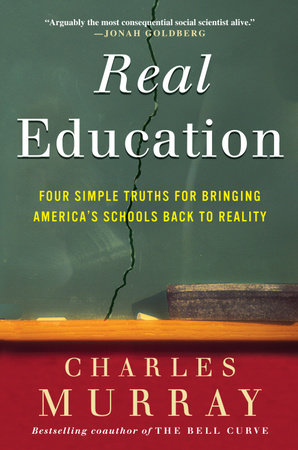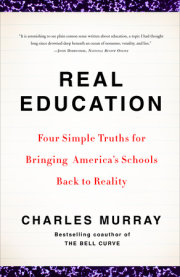"Takes a moral sledgehammer to our one-size-fits-all education mind-set."
—Washington Times
"It is astonishing to see plain common sense written about education, a topic I had thought long since drowned deep beneath an ocean of nonsense, venality, and lies."
—John Derbyshire, National Review Online
“Know the truth, and the truth shall make you free,” said a well-known educator, albeit in a religious schooling context. Charles Murray is concerned with the secular world of education, nonetheless his message is worthy of evangelism: Tell the truth, and the truth shall make you free of foolish, cruel, and counter-productive educational policies.”
—P. J. O'Rourke
“Charles Murray, arguably the most consequential social scientist alive, has discovered a nifty formula for fame (or infamy): One, in lucid, graceful prose describe reality using evidence and logic. Two, propose policies that actually take reality into consideration. And, three, sit back and wait for the inevitable caterwauling and lamentations of those who insist reality isn’t real and who swear the crooked timber of humanity is nothing more than the malleable clay of utopian social engineers. Real Education follows this recipe perfectly. Even now, if you put your ear to the ground, you can hear throats being cleared for the caterwauling to come.”
—Jonah Goldberg, bestselling author of Liberal Fascism
“Charles Murray is one professional contrarian who cannot be written off–not since his first book, Losing Ground, led to a complete restructuring of America’s welfare system. At first Real Education, with its plan for identifying “the elite,” may strike you as an elaboration of his hotly contested views on IQ. But suddenly–swock!–he pops a gasper: a practical plan for literally reproducing, re-creating, a new generation of Jeffersons, Adamses, Franklins, and Hamiltons, educated, drilled, steeped, marinated in those worthies’ concern for the Good and Virtuous with a capital V–nothing less than an elite of Founding Great-great-great-great-great Grandchildren.”
—Tom Wolfe








